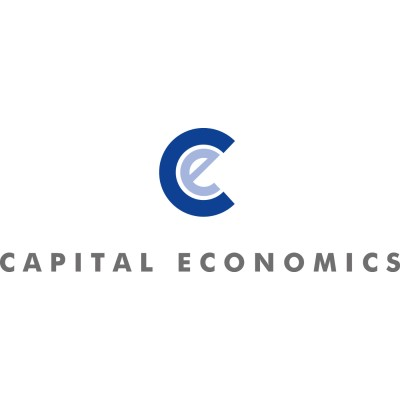The Tax Tightrope: Rachel Reeves and the UK’s Economic Dilemma
June 12, 2025, 3:45 pm
The UK economy is on a precarious ledge. Recent data reveals a troubling contraction, leaving Chancellor Rachel Reeves in a tight spot. Just days after promising stability and renewal, the reality is stark. The economy shrank significantly in April, raising questions about the government’s fiscal strategy.
Reeves’ Spending Review was a spectacle of political theater. It had the flair of a grand performance but lacked substance. She announced a £190 billion boost for public services and an additional £113 billion for investment. Yet, she glossed over the necessary cuts across government departments to fund these ambitious plans. It felt like rearranging deck chairs on the Titanic.
The Chancellor’s rhetoric was lofty. She spoke of choosing “stability over chaos” and “investment over decline.” But her words rang hollow. Critics noted that her speech resembled a motivational poster more than a serious economic strategy. The promises of efficiency savings, amounting to £14 billion annually, seem optimistic at best. It’s like expecting a miracle from a magic trick.
The reality is that the UK is staring down the barrel of a tax increase. Economists predict a potential £20 billion tax grab this autumn. The current growth forecast of just 1.2 percent raises alarms. If this forecast falters, public sector revenues will plummet, leaving Reeves scrambling for solutions. The pressure is mounting.
KPMG’s chief economist, Yael Selfin, painted a grim picture. She warned that the Chancellor may need to raise taxes significantly to avoid market backlash. The recent U-turns on welfare cuts and rising borrowing costs have compounded the problem. The path ahead is fraught with challenges.
The question looms: where will these tax increases land? Reeves has ruled out raising income tax or VAT, pledging to avoid the mistakes of previous budgets. This leaves her with limited options. She may need to target pensions, a move that could spark outrage among voters. Analysts suggest that tax relief on pensions could be on the chopping block. The reintroduction of the lifetime allowance, abolished by former Chancellor Jeremy Hunt, is a possibility.
Pensions are a tempting target. They represent a significant source of revenue. Experts warn that changes to pension tax relief could be imminent. The annual allowance reduction and the abolition of salary sacrifice are potential moves. This could lead to a backlash from those who rely on these savings for their future.
Fiscal drag is another concern. Reeves vowed to unfreeze tax thresholds, promising relief from inflation-induced tax increases. However, she could reverse this decision, further burdening taxpayers. The uncertainty surrounding tax policy is palpable. Businesses and individuals alike are left in limbo, unsure of what lies ahead.
The economic landscape is shifting. Unemployment rates are creeping up, and there are fewer payrolled employees than last year. The recent decline in GDP suggests that the earlier growth was an anomaly. The UK is not out of the woods yet.
The specter of uncertainty looms large. Last year, the government’s warnings about an “ugly” budget created a climate of fear. This time, unless Reeves can provide assurances against tax hikes, we may see a repeat of that damaging speculation. The economic environment is fragile, and confidence is key.
Tax Freedom Day has arrived, but it feels like a hollow victory. For most of the year, the average Brit has worked solely for the Treasury. Now, they can finally begin to earn for themselves. But with looming tax increases, next year’s Tax Freedom Day could be pushed further into the calendar.
The government faces a delicate balancing act. On one hand, there’s a need for increased spending on essential services like the NHS and defense. On the other, there’s the imperative to maintain fiscal credibility. The pressure to raise taxes is palpable, but the political ramifications could be severe.
Business leaders are sounding alarms. The Confederation of British Industry warns that companies cannot bear more tax burdens. The risk of stifling growth is real. The government must tread carefully, or it could choke the very engine of the economy.
As the autumn Budget approaches, the stakes are high. The Chancellor must navigate a treacherous path. The decisions made in the coming months will shape the economic landscape for years to come. The potential for tax hikes looms large, but the implications of those decisions could be far-reaching.
In conclusion, Rachel Reeves stands at a crossroads. The UK economy is fragile, and the pressure for tax increases is mounting. The Chancellor must balance the need for public investment with the imperative to maintain fiscal credibility. The choices made now will echo through the corridors of power for years to come. The tax tightrope is a precarious one, and the fall could be steep.
Reeves’ Spending Review was a spectacle of political theater. It had the flair of a grand performance but lacked substance. She announced a £190 billion boost for public services and an additional £113 billion for investment. Yet, she glossed over the necessary cuts across government departments to fund these ambitious plans. It felt like rearranging deck chairs on the Titanic.
The Chancellor’s rhetoric was lofty. She spoke of choosing “stability over chaos” and “investment over decline.” But her words rang hollow. Critics noted that her speech resembled a motivational poster more than a serious economic strategy. The promises of efficiency savings, amounting to £14 billion annually, seem optimistic at best. It’s like expecting a miracle from a magic trick.
The reality is that the UK is staring down the barrel of a tax increase. Economists predict a potential £20 billion tax grab this autumn. The current growth forecast of just 1.2 percent raises alarms. If this forecast falters, public sector revenues will plummet, leaving Reeves scrambling for solutions. The pressure is mounting.
KPMG’s chief economist, Yael Selfin, painted a grim picture. She warned that the Chancellor may need to raise taxes significantly to avoid market backlash. The recent U-turns on welfare cuts and rising borrowing costs have compounded the problem. The path ahead is fraught with challenges.
The question looms: where will these tax increases land? Reeves has ruled out raising income tax or VAT, pledging to avoid the mistakes of previous budgets. This leaves her with limited options. She may need to target pensions, a move that could spark outrage among voters. Analysts suggest that tax relief on pensions could be on the chopping block. The reintroduction of the lifetime allowance, abolished by former Chancellor Jeremy Hunt, is a possibility.
Pensions are a tempting target. They represent a significant source of revenue. Experts warn that changes to pension tax relief could be imminent. The annual allowance reduction and the abolition of salary sacrifice are potential moves. This could lead to a backlash from those who rely on these savings for their future.
Fiscal drag is another concern. Reeves vowed to unfreeze tax thresholds, promising relief from inflation-induced tax increases. However, she could reverse this decision, further burdening taxpayers. The uncertainty surrounding tax policy is palpable. Businesses and individuals alike are left in limbo, unsure of what lies ahead.
The economic landscape is shifting. Unemployment rates are creeping up, and there are fewer payrolled employees than last year. The recent decline in GDP suggests that the earlier growth was an anomaly. The UK is not out of the woods yet.
The specter of uncertainty looms large. Last year, the government’s warnings about an “ugly” budget created a climate of fear. This time, unless Reeves can provide assurances against tax hikes, we may see a repeat of that damaging speculation. The economic environment is fragile, and confidence is key.
Tax Freedom Day has arrived, but it feels like a hollow victory. For most of the year, the average Brit has worked solely for the Treasury. Now, they can finally begin to earn for themselves. But with looming tax increases, next year’s Tax Freedom Day could be pushed further into the calendar.
The government faces a delicate balancing act. On one hand, there’s a need for increased spending on essential services like the NHS and defense. On the other, there’s the imperative to maintain fiscal credibility. The pressure to raise taxes is palpable, but the political ramifications could be severe.
Business leaders are sounding alarms. The Confederation of British Industry warns that companies cannot bear more tax burdens. The risk of stifling growth is real. The government must tread carefully, or it could choke the very engine of the economy.
As the autumn Budget approaches, the stakes are high. The Chancellor must navigate a treacherous path. The decisions made in the coming months will shape the economic landscape for years to come. The potential for tax hikes looms large, but the implications of those decisions could be far-reaching.
In conclusion, Rachel Reeves stands at a crossroads. The UK economy is fragile, and the pressure for tax increases is mounting. The Chancellor must balance the need for public investment with the imperative to maintain fiscal credibility. The choices made now will echo through the corridors of power for years to come. The tax tightrope is a precarious one, and the fall could be steep.


